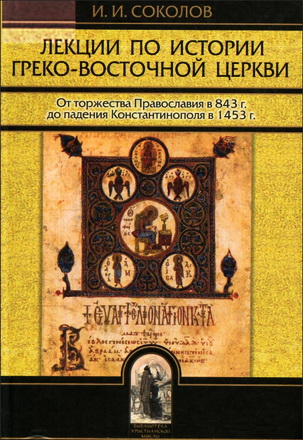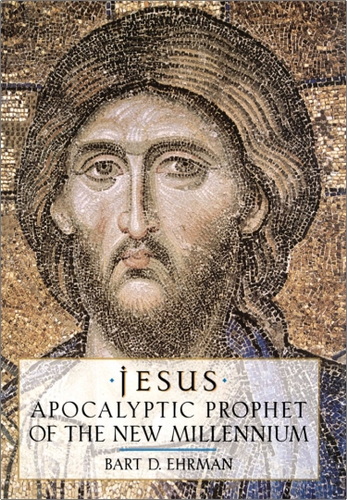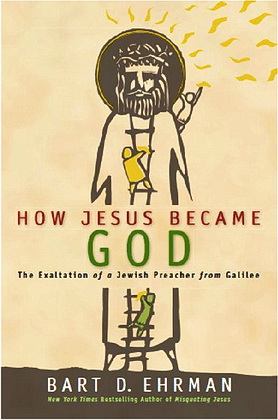
Ehrman - How Jesus Became God - Jesus - Apocalyptic Prophet
Jesus was a lower - class Jewish preacher from the backwaters of rural Galilee who was condemned for illegal activities and crucified for crimes against the state.
Yet not long after his death, his followers were claiming that he was a divine being.
Eventually they went even further, declaring that he was none other than God, Lord of heaven and earth.
And so the question: How did a crucified peasant come to be thought of as the Lord who created all things? How did Jesus become God?
The full irony of this question did not strike me until recently, when I was taking a long walk with one of my closest friends.
As we talked, we covered a number of familiar topics: books we had been reading, movies we had seen, philosophical views we were thinking about. Eventually we got around to talking about religion.
Unlike me, my friend continues to identify herself as a Christian. At one point, I asked her what she considered to be the core of her beliefs. Her answer gave me pause. She said that, for her, the heart of religion was the idea that in Jesus, God had become a man.
How Jesus Became God: The Exaltation of a Jewish Preacher from Galilee – Bart D. Ehrman
Publisher: Harper One; First Edition edition (March 25, 2014), 416 pages
ISBN: 978-0061778186
How Jesus Became God: The Exaltation of a Jewish Preacher from Galilee – Bart D. Ehrman – Contents
Divine Humans in Ancient Greece and Rome
Divine Humans in Ancient Judaism
Did Jesus Think He Was God?
The Resurrection of Jesus: What We Cannot Know
The Resurrection of Jesus: What We Can Know
The Beginning of Christology: Christ as Exalted to Heaven
Jesus as God on Earth: Early Incarnation Christologies
After the New Testament: Christological Dead Ends of the Second and Third Centuries
Ortho-Paradoxes on the Road to Nicea
EPILOGUE: Jesus as God: The Aftermath
How Jesus Became God: The Exaltation of a Jewish Preacher from Galilee – Bart D. Ehrman – The Resurrection of Jesus What We Can Know
I receive a lot of e-mails from people who are concerned that I lost my faith. Many of them tell me that I must never have had a personal relationship with Jesus; obviously my faith was all intellectual and I “reasoned” my way out of it. In their view, if I weren’t a scholar and such an egghead but realized that faith in Jesus is a matter of relating to a person as one’s Lord and Savior, I would still be within the believing community. I’m never quite sure why strangers are so concerned about me.
And I wonder if the fact that I left the faith is somehow seen as threatening, at least among people who have a gnawing suspicion, which they never explicitly acknowledge to themselves, that their own faith may need to be reexamined. Whether that’s the case or not, it simply is not true that I never had a personal relationship with Jesus. Quite the contrary: Jesus and I were very close, and for many years. He was my daily companion, comforter, guide, and teacher, as well as my Lord and Savior.
At the same time, it is true that conservative evangelical Christianity - the kind I converted into—is not entirely about a personal relationship with the divine. It has a strong intellectual component as well. This is one of the great ironies of modern religion: more than almost any other religious group on the planet, conservative evangelicals, and most especially fundamentalist Christians, are children of the Enlightenment.
The seventeenth- and eighteenth-century intellectual movement known as the Enlightenment arose during an age when reason, not revelation, came to be valued as the ultimate source of true knowledge. The natural sciences were on the rise, technologies were developing, and philosophies of the mind were in vogue. The Enlightenment caused the demise of traditional religion for many educated people and others whose views were shaped by them. Among other things, the Enlightenment encouraged reasoned skepticism of every religious tradition that was based on the miraculous, the supernatural, and revelation. By stressing the power of human thought, the Enlightenment dispelled the myths of the dominant religious traditions. It emphasized the importance of a person seeking objective verification for what he or she thinks and believes.
 Bart D. Ehrman – Jesus: apocalyptic prophet of the new millennium
Bart D. Ehrman – Jesus: apocalyptic prophet of the new millennium
Oxford: Oxford University Press, 1999. – 287 p.
ISBN 0-19-512473-1
Bart D. Ehrman – Jesus: apocalyptic prophet of the new millennium - Contents
Preface
- One: The end of history as we know it
- Two: Who was Jesus? Why it's so hard to know
- Three: How did the gospels get to be this way?
- Four: Looking about a bit: non-Christian sources for the historical Jesus
- Five: Looking about a bit more: other Christian sources for the historical Jesus
- Six: Moving on to the past: How can we reconstruct the life of Jesus?
- Seven: Finding a fit: Jesus in context
- Eight: Jesus the apocalyptic prophet
- Nine: The apocalyptic teachings of Jesus
- Ten: A place for everything: Jesus' other teachings in their apocalyptic context
- Eleven: Not in word only: the associates, deeds, and controversies of Jesus in apocalyptic context
- Twelve: The last days of Jesus
- Thirteen: From apocalyptic prophet to Lord of all: the afterlife of Jesus
- Fourteen: Jesus as the prophet of the new millennium: then and now
Notes
Bibliography
Index of subjects
Index of passages
Index of modern authors





Комментарии
Пока нет комментариев. Будьте первым!